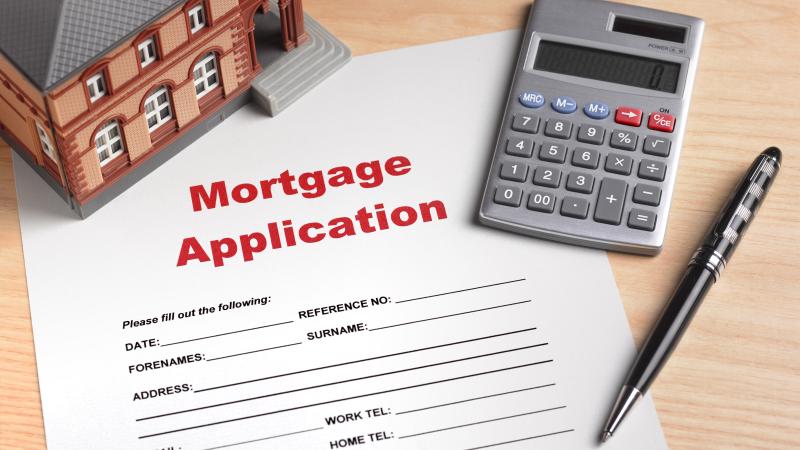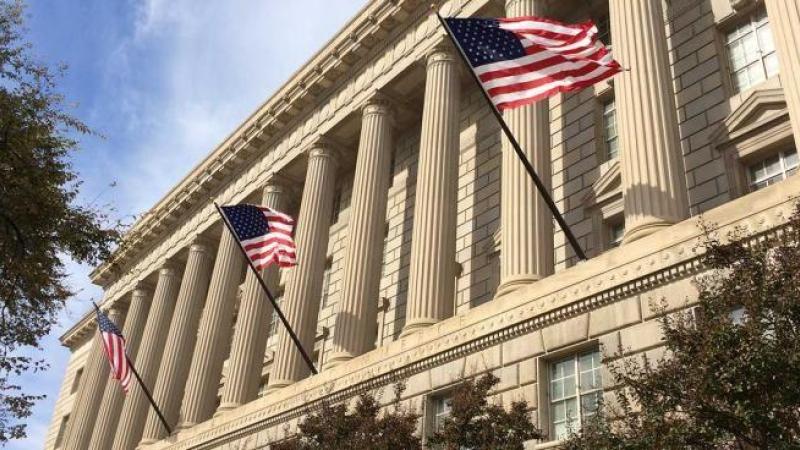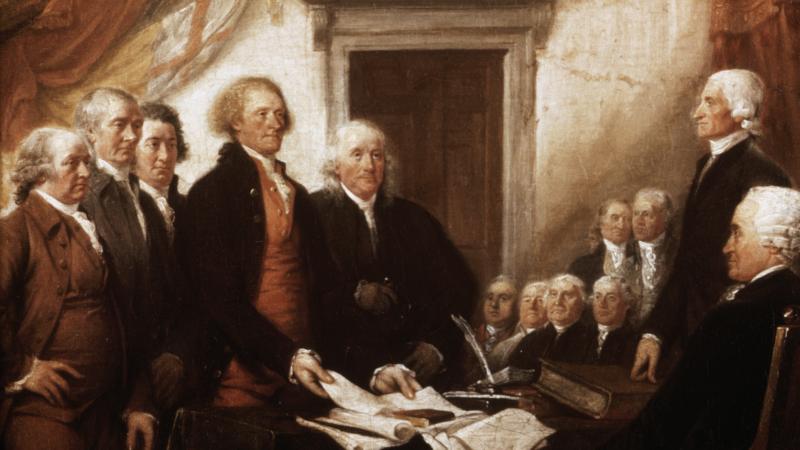Biden tax hikes could open door for key GOP attack in 2022 election
The question is whether the ambitious Democratic spending plan, and accompanying tax hikes, will become a focal point for Republicans running in 2022
Rising gas prices. An immigration crisis at the southern border. Cancel culture. As the 2022 elections for control of Congress gear up, Republicans eager to reclaim control of part of Washington are searching for the chink in the Joe Biden Democratic armor.
Some conservatives are beginning to think the best issue on which to score points may be in the offing, when the Biden infrastructure and tax plans give Democrats their first opportunity to raise taxes.
Longtime anti-tax activist Grover Norquist said that while Biden is promising to increase taxes only on those making $400,000 or more a year, or corporations, Republicans will be able to spell out exactly how those increases will be passed down to everyday middle and working class voters.
“You could make $20,000 per year, and you will be paying higher utilities because of Biden. It was a lie when he said he was only going to tax people who made more than $400,000 and you’re now seeing the fingerprints on this and it’s very, very problematic,” Norquist said during an appearance on Just the News AM last week.
A recent Just the News-Scott Rasmussen poll also showed tax increases aren't that popular, even if the new revenues are funneled toward climate change policy, rebuilding infrastructure or reducing U.S. debt.
A total of 52% of Americans in the poll said they opposed raising taxes for any purpose. Only 28% would support a tax hike for infrastructure improvement of roads, bridges and rails, 18% for climate change, and 16% to reduce the U.S. national debt.
The issue of increased taxes heated up last week after Bloomberg reported that White House economic advisers are looking to repeal most of the Trump tax cuts from 2017. That includes raising the corporate tax rate from 21% to 28%, increasing the individual rate for those earning more than $400,000 annually, expanding the estate tax and doubling the capital gains tax to 44% for those making at least $1 million per year. Biden has also spoken about bringing back the Obamacare mandate, which comes with a penalty tax that hit 5 million middle and low income Americans last it was implemented.
Biden's commitment to the $400,000 threshold also came into question when White House press secretary Jen Psaki said Biden's proposed tax increase could impact Americans making just $200,000. Psaki told reporters Wednesday that Biden's proposed tax increase on those making over $400,000 is targeted at households and not individuals, which allows individuals making $200,000 to pay more in taxes if they are married to someone making the same amount.
The Biden administration is coming off the passage of its first major legislative package, the $1.9 trillion “American Rescue Plan,” that was advertised as another coronavirus stimulus package, and included measures like $1,400 direct payments to millions of Americans. But it also was chock full of policies that will make the lives of everyday Americans more expensive in the long-term.
The administration is now preparing to move forward with a significant infrastructure bill that will address, among other things, climate and social welfare programs, and could wind up costing as much a $4 trillion. The package, which House Speaker Nancy Pelosi recently told her committee chairs to get to work drafting, will be funded, at least in part, by major tax hikes – the first of their kind since 1993 – that will impact an enormous swath of Americans.
Americans tend to feel less positively when it comes to rising gas prices, higher taxes, and more expensive utility bills. "The only things that Joe voter ultimately cares about are his take home pay and the price of gasoline," says Peter Morici, an economist and Professor Emeritus of International Business at the University of Maryland.
Gas prices across the country are already up an average of 33.2 cents per gallon over last month; prices have increased steadily each week since Biden assumed office. Canceling the Keystone XL pipeline and pausing the leasing of federal lands used for oil and gas development will not ultimately help this particular issue, nor will alienating Saudi Arabia – whose government recently raised prices for all oil grades sold to the U.S. and Europe – in favor of Iran.
Norquist, the president of Americans for Tax Reform, thinks the Biden tax plan will be "devastating to growth and to jobs, and will target middle income people.” He pointed out that in 2014, during Biden’s vice presidency, American companies moved at least $330 billion in assets out of the United States because of the country's corporate tax rate, which was 35% at the time. Even a 28% rate, Norquist said, is “higher than what Communist China does.” China’s corporate tax rate is 25%.
“People deciding around the world, where do we invest? China will steal less of it than Biden would, so investment would flow out of the United States and into China,” he predicted, signaling one line of GOP attacks.
Not everyone agrees that taxes will be the strongest economic issue for Republicans in 2022.
Morici said the issue doesn't win the day in the media because it will be hard and unsympathetic for GOP hopefuls to get out there and say "we shouldn't have raised taxes on the rich." Instead, he thinks Democrats will run into issues with their tax plan when it comes to their campaign coffers.
In particular, he said the expansion of the estate tax will work to depress the number of dollars Democrats see next cycle. "Normal Americans start to think about what they'll be leaving behind to their children," he said, and when they look at the numbers under the proposed Biden plan, "it's not that die hard Democrats will start voting Republican, they'll just stop donating."
Over in the legislative branch, Senate Minority Leader Mitch McConnell has promised a "big robust discussion about the appropriateness of a big tax increase." Though, it is unlikely that any Democrat-authored tax bill will find Republican support in the Senate, In the House, Rep. Kevin Brady (R-Texas), the ranking member of the Ways and Means Committee, has called the administration's plan to increase taxes "a terrible economic mistake."
While a straight tax bill would require a 60-vote majority in the Senate, McConnell predicts his Democratic colleagues will pursue the path of a reconciliation bill, for which they won't need any Republican support – as was the case with the American Rescue Plan.
A struggle between the administration and state tax authorities also is playing out.
Last Tuesday, 21 Republican Attorneys General wrote Treasury Secretary Janet Yellen asking her to clarify a line in the mammoth bill that seemed to imply states would not be permitted to lower taxes, should they accept funds from the federal package.
Yellen responded that cutting taxes was still OK provided the tax cuts are not the result of the influx of federal cash. The significant takeaway here is that red states are currently looking at cutting taxes, even as they emerge from the coronavirus shutdown, while blue states are almost uniformly looking at high unemployment rates rivaled only by increasingly high exit rates of their citizens and companies.
Norquist said the economic upswing of red states (due to fewer lockdowns and better tax incentives) and downturn of blue states (due to the opposite) will continue, and Washington Democrats will continue to cover the blue losses with federal funds disproportionately directed to states with perpetually unbalanced budgets.
"Because red states that are cutting taxes are coming out of the COVID recession stronger, they're getting more money in, so they can clearly cut taxes from the resources that are coming in. It's not from money from Washington, it's the money that they're getting because their economies are growing ... It's outrageous that Democrats are trying to bully them into not doing it," he said.
















